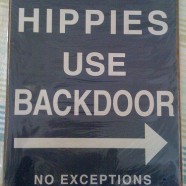
It is irrefutable that the 75 million Baby Boomers brought about lasting social and cultural changes when they were younger, with their counter culture activism for human rights, self-expression cravings and other social conscious initiatives, especially during their anti-Vietnam rebellious protests in the late 1960’s/early 1970’s. Now there is an equally vocal generation that is extremely “Pro-Social” and shares many of the same values as well, the 83 million Millennials or “8095ers” (born between 1980 and 1995), who will represent 75% of the workforce by 2025. Already this segment accounts for $1.3 trillion in consumer spending out of a total of $11 trillion (source: study by Moosylvania).
The life goals and values of these Millennials have been shaped mainly by the recent severe recession – e.g. weak job prospects, high debt, low net worth, and purchasing behavior driven by different standards for brand selection. For example, 94% of Millennials use at least one outside source for purchase guidance, and more than half consult four or more sources of information.
For Millennials, brands must prove that they are more authentic, credible, trustworthy, and especially demonstrate support for a good cause. Edelman research (2014) recently revealed that:
- 53% of Millennials said that, with quality and price equal, “social purpose” is the most important factor for making purchasing decisions
- 76% said they would be more likely to buy products from a company that actively supports a good cause
- 76% of all global consumers believe it is acceptable for brands to support good causes and make money at the same time.
- 75% of them also said they would recommend the products of these social active companies
Most companies have long recognized this need/opportunity to add a cause related dimension to their brand identity and shared value strategy. The first successful cause-related program was in 1983 when American Express raised $1.7 million to assist in the restoration of the Statue of Liberty and Ellis Island. During the next 30 years, these cause-related promotions spread throughout the world, where today it is a $100 billion annual industry.
This has led to the establishment of “B Corporations”, which are for-profit companies that pledge to achieve social goals as well as business goals. There are more than a thousand B corporations now, including Warby Parker, Patagonia, Etsy and Seventh Generation. While the overall mission of such companies is “to do good in the world”, it also creates a potential conflict with the traditional aim of a corporation: to increase shareholder value/wealth. This can be troubling to many investors of for-profit companies. It was Milton Friedman who said “increased profits is the only social responsibility of business”. Many free-marketeers view such do-good efforts of a B corporation as a waste of shareholder value. On the other hand, this mission offers an advantageous way for companies to attract and retain talented workers. Surveys show that Millennials want to work for a socially conscious companies, even taking less compensation in exchange for a greater sense of purpose.
Branding is ultimately about developing an emotional relationship with customers, one where trust will lead to stronger loyalty. The nature of branding has evolved from functional or rational branding, to emotional branding, to now “purposeful” branding, which embraces the emotional benefits of engaging in genuine social causes. However, many companies create a social purpose out of guilt, or a feeling that “we must do something socially acceptable” to satisfy the growing demands of customers, especially the Millennials.
The big challenge for companies (or opportunity) is to identify and drive a cause that credibly works for both their brand and society. Support for a cause is a powerful way of demonstrating that your brand stands for something meaningful for your customers, including Millennials. But are companies truly connecting to the unique desires and values of Millennials in a way that will captivate, engage, and also strengthen their emotional bond and build brand loyalty? Brands are a form of self-expression, as their promised value must mirror the importance of fitting into the lives of the customer. Transparency and brand trust are key; Millennials want to be engaged in the world around them and will examine all the facts before committing to a brand.
Creating a genuine social mission and shared value strategy that will successfully engage Millennials starts with a full understanding of this target segment, supported by comprehensive research of current cause-related ideas/programs, an objective, credible brand audit for the company, innovative creativity for new meaningful social ideas and approaches, and a solid commitment by senior management. At the end, this will make companies more profitable and more meaningful.
Image Credit: Pierre-Olivier Carles


